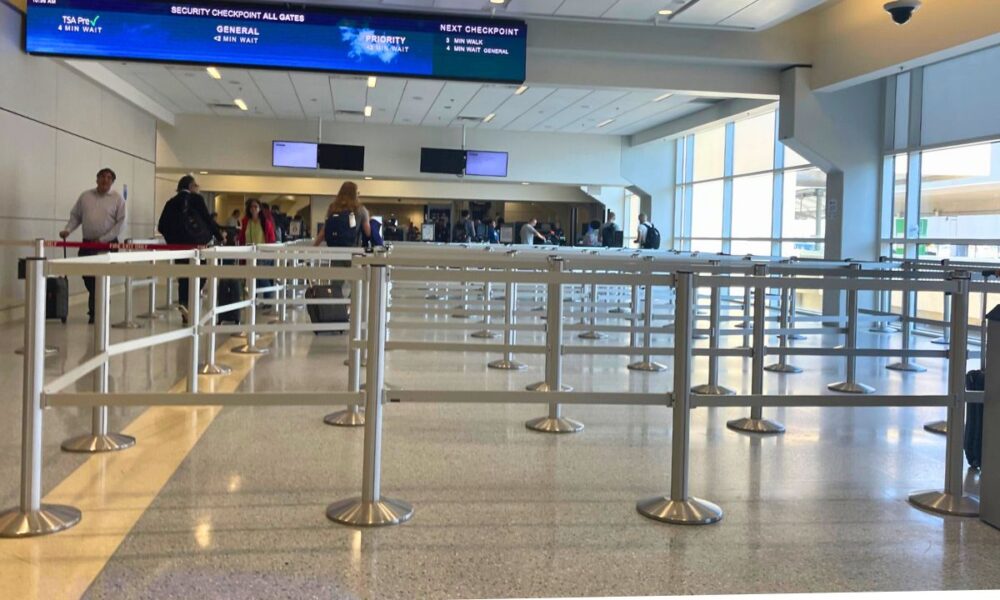Travelers at Dallas-Fort Worth International Airport on Wednesday morning moved swiftly through security despite a government shutdown taking effect overnight.
The Dallas Express observed traffic at the airport for much of the morning on October 1 and found that travelers generally waited anywhere from a few seconds to less than 10 minutes at TSA checkpoints. Parking was widely available, and overall passenger traffic was light.
The TSA wait-time data published on the DFW Airport website showed lines never exceeded 20 minutes at any checkpoint. On a few occasions, the posted times briefly rose above 10 minutes at one or two locations, but those delays dissipated quickly.
Flight delays were also minimal by midday. As of noon on Wednesday, airport data listed a few delays, including one flight from Boston that was pushed back approximately 15 minutes and another from Sydney that was held for roughly half an hour. It was not immediately clear what caused those delays.
Industry groups and airline officials have warned, however, that disruptions could worsen if the government shutdown drags on.
Airlines for America, which represents major carriers including American Airlines, Delta Air Lines, Southwest Airlines, and United Airlines, said furloughs and unpaid shifts among federal employees could strain the system.
“When federal employees who manage air traffic, inspect aircraft and secure our nation’s aviation system are furloughed or working without pay, the entire industry and millions of Americans feel the strain,” the group said in a statement reported by Reuters.
The TSA and Federal Aviation Administration classify most of their workforce as essential, meaning air traffic controllers, federal air marshals, safety inspectors, and checkpoint officers are still expected to report for duty even if the government remains shuttered. Past shutdowns, however, have shown the toll that working without pay can take.
During the 35-day shutdown that stretched from December 2018 into 2019, about 10 percent of TSA agents began calling in sick, leading to longer lines at major airports, according to reporting from CBS News.
“TSA officers are expected to continue to report to work. But in the past, if a shutdown exceeds two weeks, officers start to get frantic, and they stop going to work,” Caleb Harmon-Marshall, a former TSA officer, told CBS. He added that prolonged pay delays can prompt employees to call in sick or seek other employment, a trend that risks exacerbating already strained staffing levels.
Industry groups have warned that the economic stakes are high.
A shutdown could cost the national economy $1 billion per week while slowing passenger throughput and halting training for new air traffic controllers, who are already in short supply, the U.S. Travel Association said in a September 25 open letter.
For now, operations at Dallas-Fort Worth International Airport remain calm, but the possibility of growing disruptions persists as long as federal funding is withheld.
The Dallas Express reached out to DFW Airport’s communications team for comment on whether the airport’s leadership is preparing for an extended shutdown, but did not receive a response by the time of publication.


